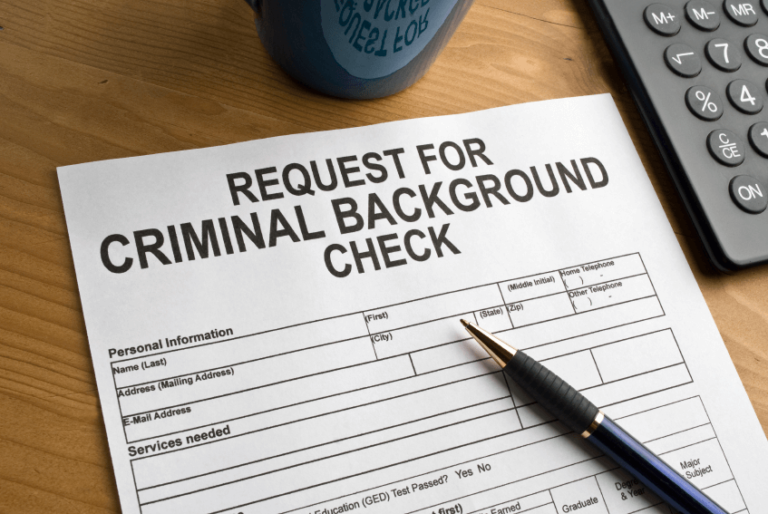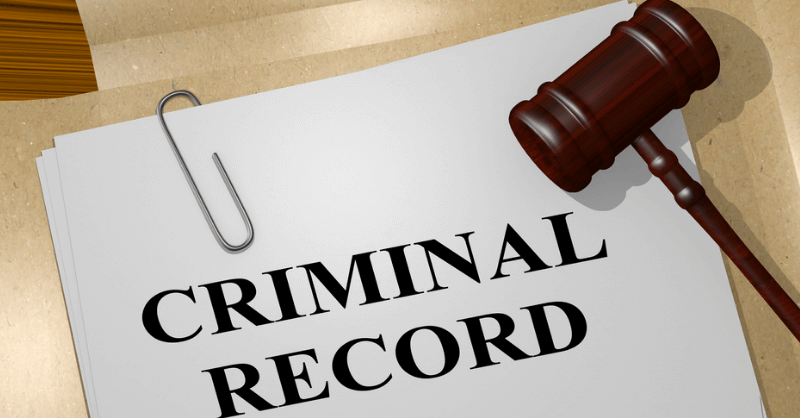Did you know that around 11 million people in the UK have a criminal record? By the age of 53, one-third of men and nine per cent of women go under conviction of an offence. Many times some minor offence can get your name in criminal files. While you cannot clear all criminal records, you can clear some with the proper method. It is helpful for you to know how to clear criminal record in the UK.
If you have a criminal record, it can be an obstruction to get a job, apply for university, rent a house, or even travel. It may stop you from getting on with your life. In the UK, the Police National Computer (PNC) stores all recordable offences. It remains there until the person becomes 100 years old.
However, there is no formal way for a person to request deletion of court convictions. For some exceptional cases, you can clear caution and convictions on a criminal record. This blog will show those circumstances and how to clear a criminal record in the UK.
Table of Contents
What is a Criminal Record?
A criminal record is a history of crimes and offences about a person. It mainly records all the misconduct that was proven by court or law. In most cases, it includes all non-expunged criminal offences. It also lists all the offences like speeding and drink-driving.

Common law originally divided crimes into two categories: felonies and misdemeanours.
A felony is a severe form of crime. For examples, felonies include murder, manslaughter, dealing drugs, rape, robbery, and arson.
On the other hand, a misdemeanour is a lower-level criminal offence. For example, minor assaults, traffic offences, or petty thefts.
A potential employer, renter, or bank to ensure the reliability of a person can ask for a criminal record. There is also a need for criminal records of a person if they are travelling internationally. It is also necessary to do background checks. Furthermore, it is necessary to investigate any further allegations and offences.
PNC is the central database to store criminal information. There are also places where you can find the information. In the UK, these places are:
Records like caution, conviction or police investigation can affect you when applying for:
What is the Police National Computer (PNC) & Police National Database?
The PNC, established in 1974, holds various personal data on individuals. Therefore, it ranges from arrests and convictions to vehicles and property. In short, it contains any kind of criminal record of a person. In contrast, the PND came along in 2009 and held police intelligence data. For example, CCTV video and other records on individuals, organisations, and firearms.

A person’s PNC record or police records contain a list of:
Mobile phone images, text messages, emails, app data
Police National Computer (PNC) enlists every recordable crime about you and your details. These records are any kind of:
Criminal convictions
You may have a conviction if you have agreed to be guilty or was found guilty of a crime. You might face any of the following:
Cautions
It is a formal warning about future actions. A senior police officer issues it to a person after they accept committing an offence. It is a substitute for imposing a charge and potentially prosecuting someone. Typically used for minor or first-time offences.
Warnings
Juvenile offenders (aged 17 and under) who commit a second offence gets a warning. The police are going to refer the young offender to the offending youth team.
Reprimands
It is a formal verbal warning. A police officer gives it to a young person who confessed to committing a “minor” first offence.
How to check my information in PNC?
Since 2006, police can keep details of all recordable offences of a person until they reach 100 years of age. Under the old ‘weeding’ rules, the police could remove qualifying records prior to 2006. A person can request to erase eligible records. But in some cases, PNC erases suitable records automatically. However, there was no systematic procedure. Therefore, many documents that were eligible for clearance were not clear and were there in the record.
According to the Data Protection Act (DPA) 1998, everyone has the right to see the data that anyone holds against them. The Subject Access Request of the DPA 1998 gives the right to have a copy of any personal data held about them.
You can ask your local police for this information directly. Most police departments have application forms to apply for the information you need. These forms can be helpful, but you have no obligations to use them; you can call, email, or write in your request instead.
Additionally, you must contact ACRO to see your record on national police databases like the PNC. You can receive a certificate from ACRO. This certificate may:
Most importantly, you cannot use the ACRO certificate for employment purposes. For employment purposes, you need to undergo Disclosure and Barring Service (DBS).
Moreover, if you find incorrect data in your ACRO certificate, you have the right to complain to ICO. You can provide or request a check for correct information.
What is a DBS Check?
For many purposes, a criminal history check is necessary. When you apply for a job that seeks trustworthiness, they do a criminal record check. Before, the Criminal Record Bureau (CRB) did the criminal check. Until Disclosure and Barring Service (DBS) came along in 2012.

The DBS, a non-departmental public body sponsored by the Home Office, does the check. When the CRB and the Independent Safeguarding Authority merged in 2012, the DBS was born. The merger aimed to make the process more effective. If necessary, the DBS will conduct a criminal background check and check against the children or disabled adults barred list.
Since DBS checks provide an organisation or employer with your data, you cannot ask them to do the check. Instead, the employer, organisation, or charity will have to request it on your behalf.
The steps are as follows:
Moreover, jobs like a teacher, childminder, social worker, doctors, foster carer need a DBS check. So if you want to apply for this position learn how to clear criminal record in the UK.
Do Driving Offences show on DBS?
Minor offences, old and first-time small offences, which did lead to conviction, don’t appear in the DBS report. It can be a first time driving offence. The legislation provides the rules on when you can filter a conviction or caution. It states that a certificate must include the following:
How to Clear Criminal Records in the UK?
If you want to know how to clear criminal records in the UK, first, it’s important to know that deleting police data is discretionary.
Thus, if you already have data in your criminal history that was taken lawfully, it is likely police may refuse to remove the record. No matter how minor the offence was.

If you want to clear your criminal records so that it doesn’t appear in your DBS check, you must first realise the magnitude of the offence you committed. It is rare to clear your PNC data.
Are you Eligible to clear a Criminal Record?
Here is what you should learn before knowing how to clear criminal record in the UK. The table below will tell you whether to apply for the record deletion process.
Eligible
Not Eligible
Who can Clear your Criminal Records?
The chief police officer owns all the right to data in the PNC. They decide for exceptional cases to delete non-court disposal such as caution. They also delete other non-conviction data.
A person can request to have a record removed from the PNC by filling out a form available on the ACRO Criminal Records Office’s website. The National Police Chiefs’ Council (NPCC) has guidance on the Record Deletion Process. It states that there are no fixed criteria for record deletion. So chief officers must use their professional judgment based on the information available.
You have to completely fill-up the form. You also have to attach identity proof and any document to support the application. The chief police officer receives the application for any judgment. Here are some circumstances where record deletion:
No Crime
When there is proof that the recorded crime was not committed or took place.
Related:
1. What is the Difference Between Civil and Criminal Law?
2. How to Become a Criminal Intelligence Analyst
Malicious or False Allegation
When a case drops against a person at some point. Additionally, if there is proof that the case was a malicious or false claim.
Proven Alibi
When there is proof that a suspect is an alibi and, as a result, removed from the investigation.
Suspect status not clear at the time of arrest
When a person is arrested at the start of an investigation, the line between perpetrator, victim, and witness is not clear, and the person is eventually ruled out as a suspect (but maybe a witness or victim).
Note that a person with a court conviction cannot request or apply to delete their record under this process.
Final Thoughts!
The blog covered most of the things you need to know about criminal records and how to clear criminal record in the UK. To get more information on criminal records and develop your criminology skill, join our course Criminal Intelligence Analyst.
FAQs
1. How to get convictions removed from DBS?
Convictions can be removed from a DBS check by applying for what’s called a “filtering” process. This involves filling out an application form provided by the Disclosure and Barring Service (DBS) and submitting it along with necessary documents and fees. The DBS will then review the application and make a decision on whether the conviction should be removed from the person’s record. It’s important to note that not all convictions are eligible for removal, and certain criteria must be met.
2. Can you get your criminal record cleared?
Yes, in the UK, individuals have the opportunity to clear their criminal records through a process called “criminal record expungement” or “criminal record deletion.” This involves applying to have certain convictions or cautions removed from their record, which can significantly improve employment prospects and other opportunities.
3. Can you pay to clear your criminal record?
Paying to clear your criminal record in the UK is not possible. The process involves applying to have your record removed through certain legal procedures, which may include spending a certain amount of time with a clean record or meeting other criteria specified by the law. It’s important to follow the appropriate steps and meet the necessary requirements for your record to be cleared.
4. Can I get my criminal record wiped?
Yes, your criminal record can be wiped in the UK. This process involves applying for a criminal record deletion through the Disclosure and Barring Service (DBS). Eligibility depends on various factors, such as the type of offense, the time passed since the conviction, and your behavior since then. The application typically involves completing a form and providing supporting documents. Once submitted, the DBS will review your case and decide whether to delete your record.
5. How to check my criminal record uk for free?
Your criminal record in the UK can be checked for free by requesting a copy of your criminal record from the Disclosure and Barring Service (DBS). This can be done online or by mail, and you’ll need to provide personal details and identification documents. Once your request is processed, you’ll receive a copy of your criminal record by post.
6. How long does a criminal record last?
A criminal record typically lasts for a certain period, depending on the offense. Minor offenses may become spent after a few years, while more serious ones take longer. Once spent, they don’t usually need disclosure.
7. How much does it cost to clear your criminal record?
Clearing a criminal record in the UK costs around £90 for a basic check and up to £800 for a more thorough process, depending on the complexity of the case and legal fees involved.
8. Does your criminal record clear after 7 years uk?
Yes, in the UK, criminal records can clear after 7 years, depending on the type of offense. Certain minor offenses can be automatically removed from a person’s record after this period, provided they haven’t committed any further crimes. However, more serious offenses may remain on record for longer periods.
9. Does a criminal record expire uk?
Yes, in the UK, a criminal record can expire after a certain period of time. This depends on the type of offense committed. For minor offenses, the record might be automatically removed after a set number of years, while for more serious crimes, it might never expire. The process of clearing a criminal record involves applying to have it removed or ‘spent’ after a certain rehabilitation period has passed.
10. What does unspent convictions mean?
Unspent convictions refer to criminal offenses for which a person hasn’t completed their punishment, such as serving a prison sentence or paying a fine. These convictions remain on an individual’s record and can affect various aspects of their life, like job opportunities and travel.
11. How long does drink driving stay on criminal record uk?
Drink driving convictions typically remain on a criminal record in the UK for a period of 11 years starting from the date of the conviction.
12. Can I go to america with a criminal record from uk?
Yes, it is possible to go to America with a criminal record from the UK. However, having a criminal record may affect your eligibility to enter the United States. The decision ultimately depends on the severity of the offense and other factors, such as the type of visa you’re applying for and any legal steps you’ve taken to address your record. It’s advisable to consult with immigration authorities or legal experts for personalized guidance on your situation.
13. If I change my name will my criminal record follow me uk?
In the UK, if your name is changed, your criminal record will still be linked to you. Changing your name won’t automatically erase or remove your criminal record. The record will still be accessible under your new name.
14. If you are arrested but not charged is it on your record uk?
If someone is arrested but not charged in the UK, the arrest can still be recorded on their police record. This record is kept by the police and may be disclosed in certain situations, such as when applying for certain jobs or visas. However, being arrested without being charged does not necessarily mean that a person has a criminal record or that they have been convicted of a crime.
15. If you are arrested but not charged do you have a criminal record uk?
If you have been arrested but not charged in the UK, a criminal record is not automatically created for you. However, information about the arrest might be retained by the police. If you’re concerned about this, you can request to have your records deleted or amended through the police or other relevant authorities.
16. Does your criminal record clear at 18 uk?
Yes, in the UK, criminal records can be cleared at 18 through a process called ‘spent convictions’. This means that certain offenses become legally disregarded after a specified period, providing the individual doesn’t re-offend during that time.
17. Can I get a conviction removed from my record?
Yes, convictions can be removed from your record in the UK through a process called “spent conviction” under the Rehabilitation of Offenders Act 1974. This allows certain convictions to become ‘spent’ after a rehabilitation period, varying on the sentence received. After this period, you don’t have to disclose the conviction in most circumstances, such as job applications. However, some professions may require disclosure regardless.







 January 06, 2024
January 06, 2024








